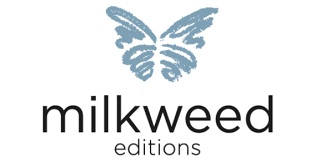Upcoming Contest Deadlines
Start the year off right by submitting to writing contests with deadlines of January 15, 24, and 30. Prizes include $5,000 for creative nonfiction that evinces a passion for the desert, $5,000 and an all-expenses-paid trip to give a reading at Virginia Commonwealth University in Richmond for a published first or second book of poetry, $1,500 for a poetry collection, $1,000 for a short story or a self-contained novel excerpt, and more. All awards offer a cash prize of $1,000 or more. Good luck in 2023, writers!
Asheville Poetry Review
William Matthews Poetry Prize
A prize of $1,000 and publication in Asheville Poetry Review is given annually for a single poem. The winner is also invited to give a reading at Malaprop’s Bookstore in Asheville, North Carolina. Diane Seuss will judge. Deadline: January 15. Entry fee: $20.
Ellen Meloy Fund
Desert Writers Award
A prize of $5,000 is given annually to enable a creative nonfiction writer “whose work reflects the spirit and passions for the desert embodied in Ellen Meloy’s writing” to spend creative time in a desert environment. Deadline: January 15. Entry fee: $15.
New American Press
New American Poetry Prize
A prize of $1,500, publication by New American Press, and 25 author copies is given annually for a poetry collection. Writers of any citizenship working anywhere in the world are eligible, though the work should presume English-language readers. Jamaica Baldwin will judge. Deadline: January 15. Entry fee: $25.
North Carolina Writers’ Network
Rose Post Creative Nonfiction Competition
A prize of $1,000 is given annually for an essay “that is outside the realm of conventional journalism and has relevance to North Carolinians.” The winning essay will also be considered for publication in Ecotone. Writers who are legal residents of North Carolina or who are members of the North Carolina Writers’ Network are eligible. Julia Ridley Smith will judge. Deadline: January 15. Entry fee: $12.
North Carolina Writers’ Network
Thomas Wolfe Fiction Prize
A prize of $1,000 is given annually for a short story or a self-contained novel excerpt. Judy Goldman will judge. The winning work of fiction will also be considered for publication in Thomas Wolfe Review. Deadline: January 30. Entry fee: $25 entry fee ($15 for NCWN members).
Poetry Society of Virginia
North American Book Award
A prize of $1,000 is given annually for a poetry collection published during the previous year. The winner is also invited to read at the organization’s annual Spring Poetry Festival, held at the Richmond Public Library in May. Self-published books and books that have previously received a post-publication award are ineligible. Bill Glose will judge. Deadline: January 15. Entry fee: $36
Sixfold
Poetry and Short Story Awards
Two prizes of $1,000 each and publication in Sixfold are given quarterly for a group of poems and a short story. Deadline: January 24. Entry fee: $5.
Virginia Commonwealth University
Levis Reading Prize
A prize of $5,000 and an all-expenses-paid trip to give a reading at Virginia Commonwealth University in Richmond is given annually for a first or second book of poetry published during the previous year. Deadline: January 15. Entry fee: none.
Visit the contest websites for complete guidelines, and check out the Grants & Awards database and Submission Calendar for more contests in poetry, fiction, creative nonfiction, and translation.





